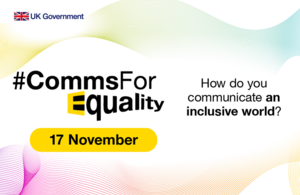Parents and carers serve as children’s first educators and teachers. This is something most people can agree on, yet offering parents advice on how they can best perform these important roles is something of a taboo. Home and family life is rightly private and pushing tired, stretched parents to do more and more can come across as patronising, ‘parent-shaming’ or simply tone deaf in today’s difficult economic climate.
Yet, getting parenting right has the potential to shape a child’s growth, development and life course for the better, irrespective of socioeconomic background or circumstance. More recently, government agencies, charities, schools and even private companies have clocked the holistic benefits of parent-child interactions and various campaigns have emerged on the topic such as the BBC’s Tiny Happy People and the NHS’ Start for Life.
As the conversation around parenting gets louder, some are calling for further action. Lee Elliot Major, Professor of Social Mobility at Exeter University, says in the first episode of our Social Mobility Talks podcast: “There are too many parents who are not given the information of what you can do to help your children”.
At the Social Mobility Commission, we have looked into the activities parents can do with their children to support their child’s development. This work has shown that the early years are an essential window to act, as the experiences a child has in their first 5 years provide the building blocks for their life.
In these early years, there is great opportunity, but also great risk, as children that get ahead tend to stay ahead whilst those that fall behind struggle to catch up. To bring this home, on average, the poorest children start school 4.5 months behind all others and leave school at age 18 a staggering 18.1 months of learning behind their more advantaged peers (Education Policy Institute, Annual Report, 2020).
What parents can do
Simple interactions between a parent and child can be learning moments for children in their early years, in ways likely more significant than at any other period in the child’s life. Therefore, giving a child a leg up can be as simple as talking, playing and reading with them. Regardless of whether a child has the ability or vocabulary to respond, engaging in reciprocal communication can develop their cognitive and language skills and using an array of words is one of the strongest predictors of children’s early language development.
In terms of play, ‘guided play’ – where a parent joins in a playful activity with their child – can lead to improvements in a child’s understanding and retention of things like shapes and names compared with those who play alone. Learning through play also contributes to all kinds of healthy development features such as planning, self-regulation and mental flexibility.
For educational attainment reading is a big ticket item, but, as drawn out in our podcast episode on parenting, reading only reaches its potential impact if it is consistent – at least 3 times a week for 15 minutes. Reading with a child has been shown to improve their socio-emotional skills as well as literacy and numeracy and it is linked with lifelong benefits for cognition, vocabulary and pattern construction.
As often said, it takes a village to raise a child, and therefore every adult that’s around in a child’s early years has the potential to engage with them in productive interactions that can seed countless lasting benefits.
How we can help parents
To avoid shaming, patronising, nannying or burdening parents who are already trying to do the best for their children, policy makers, the health services and government departments need to find ways to offer empathetic but proactive guidance, confidence and support.
Parents need to be made aware that talking to their baby is beneficial, even if they are too young to respond – and assured that reading does not have to mean long complicated books but can be any words they see around them.
Research also shows that lack of confidence plays a key role in why parents do or do not engage with their children. For parents in general, but particularly those that might not have experienced this style of parenting themselves, wavering belief in their own abilities and skills may contribute to stress, anxiety and unhappiness which can itself act as a barrier to supporting their child’s learning.
We therefore need to translate these findings into constructive action which fills the gaps in parents’ knowledge and empowers them with the tools and confidence to interact more effectively with their children. We need to do this while recognising that parents operate within a wider environment, juggling raising their children with other challenges – such as getting food on the table, working long hours, keeping up with rising energy bills and finding secure housing.
The SMC will therefore be looking to increase parents’ understanding of how they can nurture their children’s talent in the early years whilst at the same time, considering how other factors, like improving education, growing the economy and creating more opportunities for more people in more places are so crucial. To succeed, we need to provide parents knowledge along with the time, resources and a favourable environment to act on it.
To shape our thinking, we will explore the impact of government-led initiatives that have targeted families to understand ‘what works’ in terms of enabling every child to fulfil their potential.
To listen to our podcast on the topic of parenting, a conversation between our Chair, Katharine Birbalsingh and Lee Elliot Major, Professor of Social Mobility at the University of Exeter, follow one of the links below:
